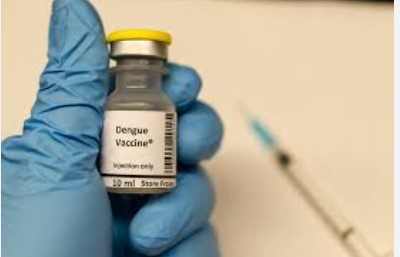Context:
Recently, the World Health Organisation (WHO) announced the prequalification of a second vaccine for dengue TAK-003.
TAK-003 Vaccine
- This vaccine has been made by the Japanese drug maker Takeda Pharmaceuticals.
- It is a live-attenuated vaccine containing weakened versions of the four serotypes of the virus that cause dengue.
- This vaccine helps the body to build immunity without causing the disease.
- Only two dengue vaccines have been prequalified to date.
- The WHO had previously prequalified the CYD-TDV vaccine against dengue, developed by Sanofi Pasteur.
- This vaccine can be given to children aged 6 to 16 years in areas with high dengue prevalence and transmission rate.
- According to the WHO, the vaccine should be given in a 2-dose schedule with a 3-month interval between doses.
- Countries approved the vaccine: The UK, Brazil, Argentina, Indonesia and Thailand.
World Health Organisation (WHO) prequalification
- It means that the health agency has assessed and approved the vaccine for quality, safety, and efficacy.
- It ensures that the vaccine meets international standards and can be used globally, particularly in low- and middle-income countries.
- Prequalification allows the vaccine to be included in procurement by UN agencies and other global health organisations.
About Dengue

- Dengue is a vector-borne infectious disease transmitted through the bites of infected female mosquitoes, primarily by Aedes aegypti (Aedes aegypti) and Aedes albopictus (Aedes albopictus) mosquitoes
- Dengue viruses belong to the genus Flavivirus within the family Flaviviridae. Flaviviruses are lipid-enveloped, single-stranded RNA viruses.
- It is estimated that there are over 100-400 million cases of dengue worldwide each year.
- The largest number of dengue cases reported was in 2023 with the WHO Region of the Americas reporting 4.5 million cases and 2300 deaths.
Also Read:
Affordable Sensor Developed for Detecting Lead Contamination

